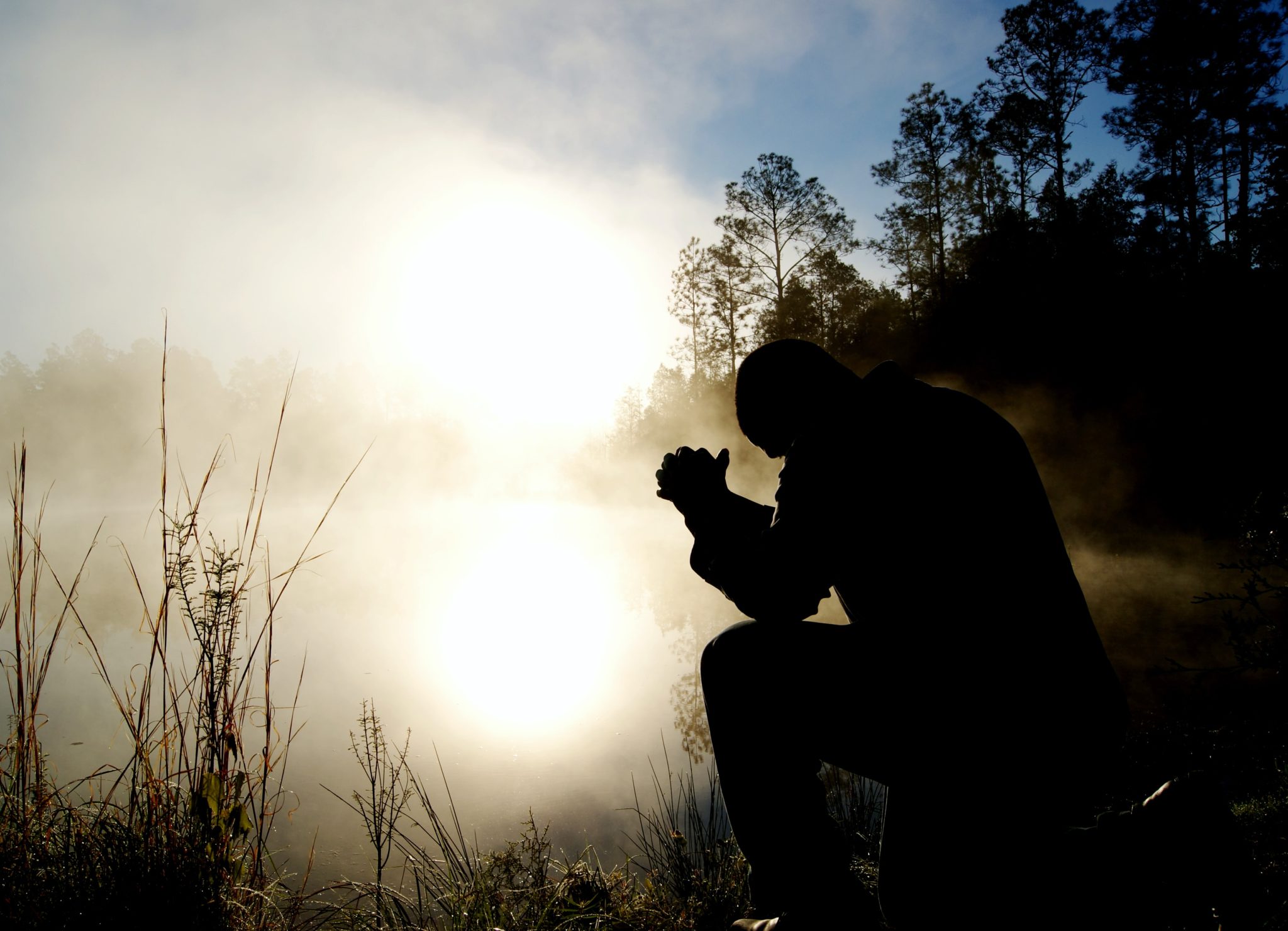Editor’s note: Kent Fry submitted this article before the police shooting of Jacob Blake and the protests in response, during which an armed civilian shot and killed two protesters.
The demonstrations and street protests following the death of George Floyd at the hands of the Minneapolis police certainly lit a match to an underlying condition that people of color have been protesting vehemently for decades. However, the white-majority community has not listened very well to these concerns in the past. Maybe it is time for those of us who are white to listen—to let leaders in the communities of color take the lead while those of us who are white learn and offer support.
Corporate confession as a response to racism
We find it difficult to hear that we who have been the recipients of white privilege are complicit in a racist system. But the practice of slavery was present in the colonies of America before the United States was even a country. As theologians of color remind us, “Racism is America’s original sin.” The street demonstrations of this summer in support of “Black Lives Matter” and against abusive police practices have led me to rediscover and reaffirm a key Christian worship tradition and practice: corporate confession.
The Directory for Worship of the Reformed Church states: “Sin is both individual and corporate. To deny either allows self-righteousness. The prayer prayed corporately helps the congregation to recognize that in buying and selling, in peace and in war, we are inextricably a part of the inequality and exploitation of the world, and we must face the truth about ourselves and our need continually to ask forgiveness.”
I do not deny the importance of action in relation to the injustice against people of color in our history, but maybe the first way that I can respond to the cries of protest about racism is by entering deeply into the prayer of confession before God. As I listen to cries of people of color and the marginalized, I can search the ways of my own heart, invite others in the congregation into honest spiritual assessment, and encourage seekers to acknowledge ways that we all participate in unjust systems.
Understanding and repenting from corporate sin
I realize that to suggest the corporate prayer of confession as a first response to the street demonstrations is to invite any number of concerns.
First, a corporate prayer of confession is seen as assuming that one has somehow failed to love’s one neighbor when one may be an entirely kind and decent human being.
A member of our congregation once brought a relative from out of town with them to church who was quite critical of us for including a corporate prayer of confession said in unison as a part of our worship (something we do every Sunday). “Who were we to assume that he was prone to hate God and his neighbor?” the visitor questioned. The visitor considered himself a good person: amiable, kind, and polite with all his neighbors. The member of the church told me that her relative was so incensed that we had a unison prayer of confession that he would never come back to our church again.
Theologically speaking, even if you are “a polite and decent human being,” everyone participates in a whole realm and nexus of sin. Eugene Heideman, writing in the commentary of Our Song of Hope, a contemporary confessional approved for teaching in the Reformed Church, has particularly pertinent words related to the last few weeks in America:
“We are enmeshed in systems of life which embody the sin of our race. That sin reaches into our political, economic, social, educational, and even religious institutions….It not only touches our souls; it reaches into our bodies, causing blindness in some, malnutrition in others, and kills those who do little harm to others” (Eugene Heideman, Our Song of Hope, page 21).
Dr. Heideman further elaborates that ancient theologians’ talk of inherited sin was not so much to conclude it was biological, but rather that by being a part of the human race we inevitably participate in a whole nexus of sin in the world.
During a family drive around Grand Rapids, my ten-year-old son was much more observant than I had realized. He asked, “Why do the people of color live in certain sections of town in the older, less adequate housing?” We had one of those crucial parent-child conversations about the built-in inequality in our communities that maintains unequal systems of housing, education, and employment based.
When I go to the store and buy a nice outfit for my wife for a birthday or anniversary and I pride myself on getting such a good price, it just might be that the labor conditions are exploiting women working in the factories of Asia. I can stay home and work from home during the pandemic, a privilege for which I am thankful, but often people of color, because of their essential work, bear the brunt of grim statistics in relation to the pandemic. (And of course, many people of color do not have the same access to health care that I do).
A practice for both new believers and longtime Christians
A second concern with the prayer of confession recited in corporate worship is that it is not seeker-sensitive. In the last few decades, as churches have found themselves navigating ministry in a culture that is increasingly secular, there has been a focus on seeking out new believers. To appeal to seekers, the general intuition has been to remove prayer of confession, particularly corporate confession, from worship. It is seen as a real downer when the emphasis should be on upbeat praise of God and affirmations of human betterment.
James K. Smith notes that Christian historic worship always included a communal, public confession of sin “for the things we have done and the things we have left undone.” But the “the regular, stark, uncomfortable confession of sin doesn’t seem like something that would be enjoyed by seekers.” It raises difficult questions and brings us face-to-face with disquieting truths about ourselves. And some of that disquieting truth is not just individual and personal, but the hard truth that our buying and our selling reflect the skewing of creation (James K. Smith, You are What You Love, page 104). As a result, we create institutions and systems that are unjust. These systems have embedded in them racial discrimination that is deeply rooted in our history.
So my congregation and I are invited to pray:
God of all nations, we praise you that in Christ
the barriers that have separated humanity are torn down.
Yet we confess our slowness to open our hearts and minds
to people of other lands, tongues, and races.
Deliver us from the sins of fear and prejudice,
that we may move toward the day
when all are one in Jesus Christ. Amen. (Worship Sourcebook, page 104)
For the seeker-sensitive worship movement, the prayer above may seem like the sort of thing that needs to be edited out of our worship. But this may be exactly what both the long-time follower of Jesus who lives in the atmosphere of white privilege and the person who is genuinely seeking Jesus for the first time desperately need.
What if confession is something people of faith and members of our society from all walks of life long for? As James K. Smith puts it, “What if an invitation to confess our sins is actually the answer to our seeking? What if we want to confess our sins and didn’t even realize it until given the opportunity?” (James K.A. Smith, You are What You Love, page 104) What if we acknowledge that our places, positions, and power are not so much a matter of our own ingenuity but more a result of our privilege and could come clean before God, renewed in heart and spirit?
Hand in hand with grace
A third concern about focusing on a corporate prayer of confession is that it is out of step with a more positive self-esteem, human affirming spirit of our age. Yet the prayer of confession corporately is never recited without the Assurance of Pardon. “God so loved the world, he gave his only Son.” “If anyone is in Christ, he or she is a new creation.”
Because we know the love of God in Jesus Christ, we can dare to enter confession. And because we have experienced the love of God in Jesus Christ, we can dare to move beyond individual sins to take up the entire ways that we have fallen short of the glory of God—the ways we are participating in unjust systems that reward some but leave others without the ability to experience human flourishing.
Because we know that God is gracious and merciful, we can search our hearts, acknowledging that some have access to the internet and educational learning opportunities, while others are left trapped without the necessary access. We will be saved not because we are so nice and kind on an individual level, but because God recognizes that we are trapped and cannot save ourselves. And out of that grace and gratitude to God, we can dare to be honest about our own culpability. We can begin the hard work of our own inner journey toward owning our racism and privilege. And we can pray that God will give us a spirit of humility to support changes to the system so that our fellow human beings have not only life, but human flourishing.
Corporate confession as our witness
Recently, I was sitting under my portico social distancing with a person who has been visiting us in virtual worship. He asked me, “Tell me why you do that prayer all together? It’s so strange and different, unlike anything I have ever experienced before. Can you tell me what that is?” Corporate confession together might be the first step toward working on the racism in our own heart, and just maybe, a winsome witness for the good news of Jesus’s grace and forgiveness, which is for our personal sins and extends to the length and breadth, height and depth, of our social sins as well.
Kent Fry
Kent Fry is pastor of Third Reformed Church in Holland, Michigan.



